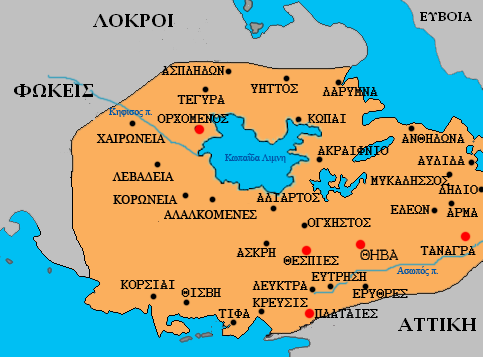Hyettus (Boeotia) on:
[Wikipedia]
[Google]
[Amazon]
 Hyettus or Hyettos ( grc, Ὕηττος) was a village in
Hyettus or Hyettos ( grc, Ὕηττος) was a village in
 Hyettus or Hyettos ( grc, Ὕηττος) was a village in
Hyettus or Hyettos ( grc, Ὕηττος) was a village in ancient Boeotia
Boeotia ( ), sometimes Latinized as Boiotia or Beotia ( el, Βοιωτία; modern: ; ancient: ), formerly known as Cadmeis, is one of the regional units of Greece. It is part of the region of Central Greece. Its capital is Livadeia, and its lar ...
, Greece
Greece,, or , romanized: ', officially the Hellenic Republic, is a country in Southeast Europe. It is situated on the southern tip of the Balkans, and is located at the crossroads of Europe, Asia, and Africa. Greece shares land borders with ...
. According to Pausanias, who visited the site in the 2nd century CE, it was located near Lake Copais, at 7 stadia
Stadia may refer to:
* One of the plurals of stadium, along with "stadiums"
* The plural of stadion, an ancient Greek unit of distance, which equals to 600 Greek feet (''podes'').
* Stadia (Caria), a town of ancient Caria, now in Turkey
* Stadi ...
from Olmones Olmones ( grc, Ὄλμῶνες) was a village in ancient Boeotia, situated 12 stadia to the left of Copae, and 7 stadia from Hyettus
In Greek mythology, Hyettus ( grc, Ὕηττος - ''Hyettos'') was a native of Ancient Argos, Argos thought to ha ...
and 20 stades from Cyrtones
Cyrtones or Kyrtones ( grc, Κύρτωνες), anciently called Cyrtone or Kyrtone (Κυρτώνη), was a city of Boeotia, east of the Lake Copais, and 20 stadia from Hyettus, situated upon a lofty mountain, after crossing which the traveller arr ...
. There was a temple of Heracles
Heracles ( ; grc-gre, Ἡρακλῆς, , glory/fame of Hera), born Alcaeus (, ''Alkaios'') or Alcides (, ''Alkeidēs''), was a divine hero in Greek mythology, the son of Zeus and Alcmene, and the foster son of Amphitryon.By his adoptive ...
in the village, frequented by the sick for the cure of their diseases, with the deity worshiped in the form of a rude stone. An inscription built into the chapel of Agios Nikolaos south of the acropolis
An acropolis was the settlement of an upper part of an ancient Greek city, especially a citadel, and frequently a hill with precipitous sides, mainly chosen for purposes of defense. The term is typically used to refer to the Acropolis of Athens, ...
attests to a cult of Savior Asklepios in the 2nd century CE.
The village was founded by and named after the mythological figure Hyettus
In Greek mythology, Hyettus ( grc, Ὕηττος - ''Hyettos'') was a native of Ancient Argos, Argos thought to have been the first man ever to have exacted vengeance over adultery: he reputedly killed Molurus, whom he had caught with his wife, and ...
from Argos
Argos most often refers to:
* Argos, Peloponnese, a city in Argolis, Greece
** Ancient Argos, the ancient city
* Argos (retailer), a catalogue retailer operating in the United Kingdom and Ireland
Argos or ARGOS may also refer to:
Businesses
* ...
, who fled to this area after he killed his adulterous wife.
Its acropolis is located on a low hill, crowned by a chapel of Agios Athanasios, in a locality called Dendri, approximately three km NNE of the village of Pavlos, Viotias. On the west side of the acropolis, a stretch of polygonal fortification wall preserves a number of inscriptions of the 4th or 3rd century BCE listing young men serving in the local self-defense force. Also on the W slope are stalactite caves.
References
Populated places in ancient Boeotia Former populated places in Greece Locations in Greek mythology {{AncientBoeotia-geo-stub